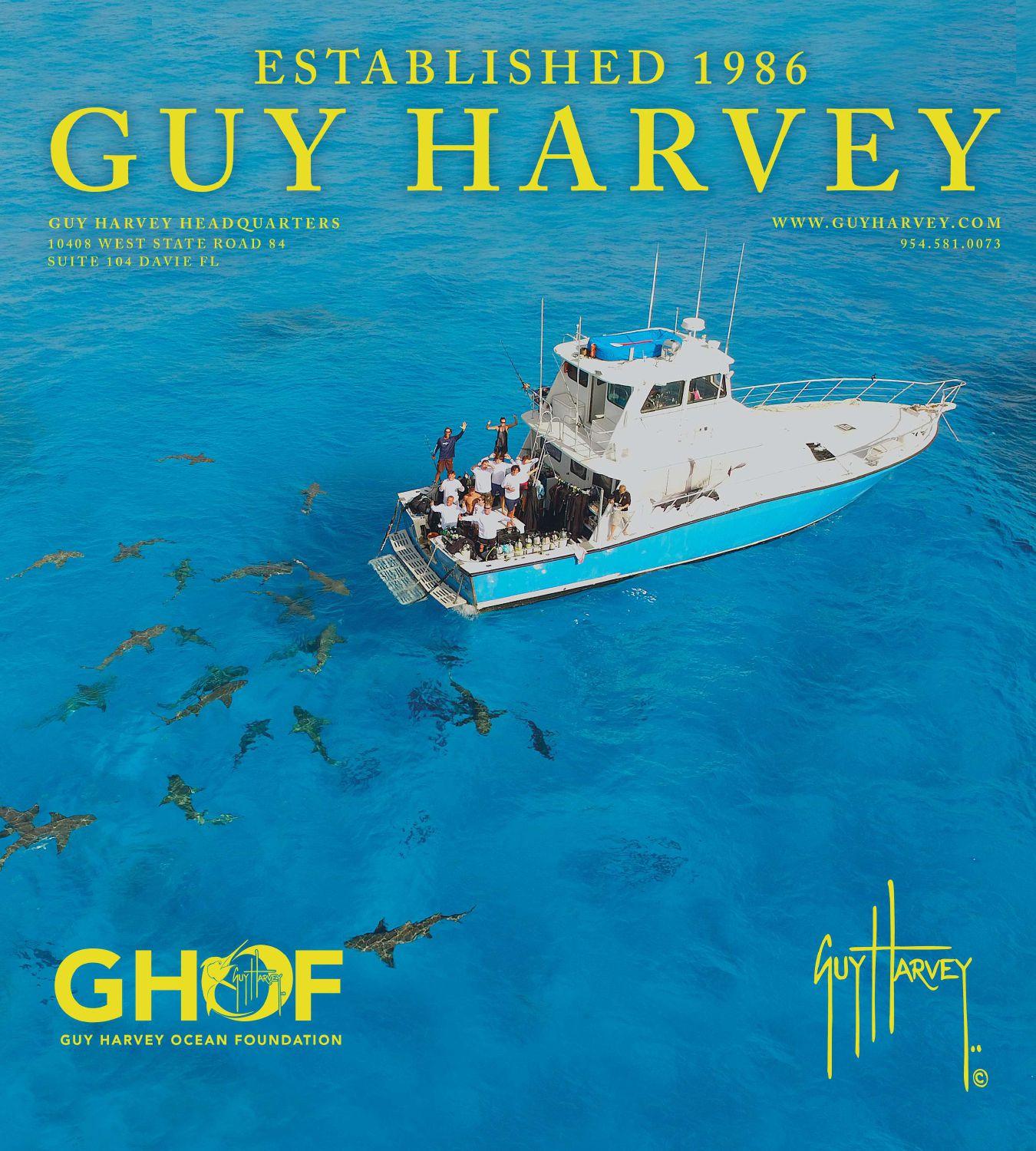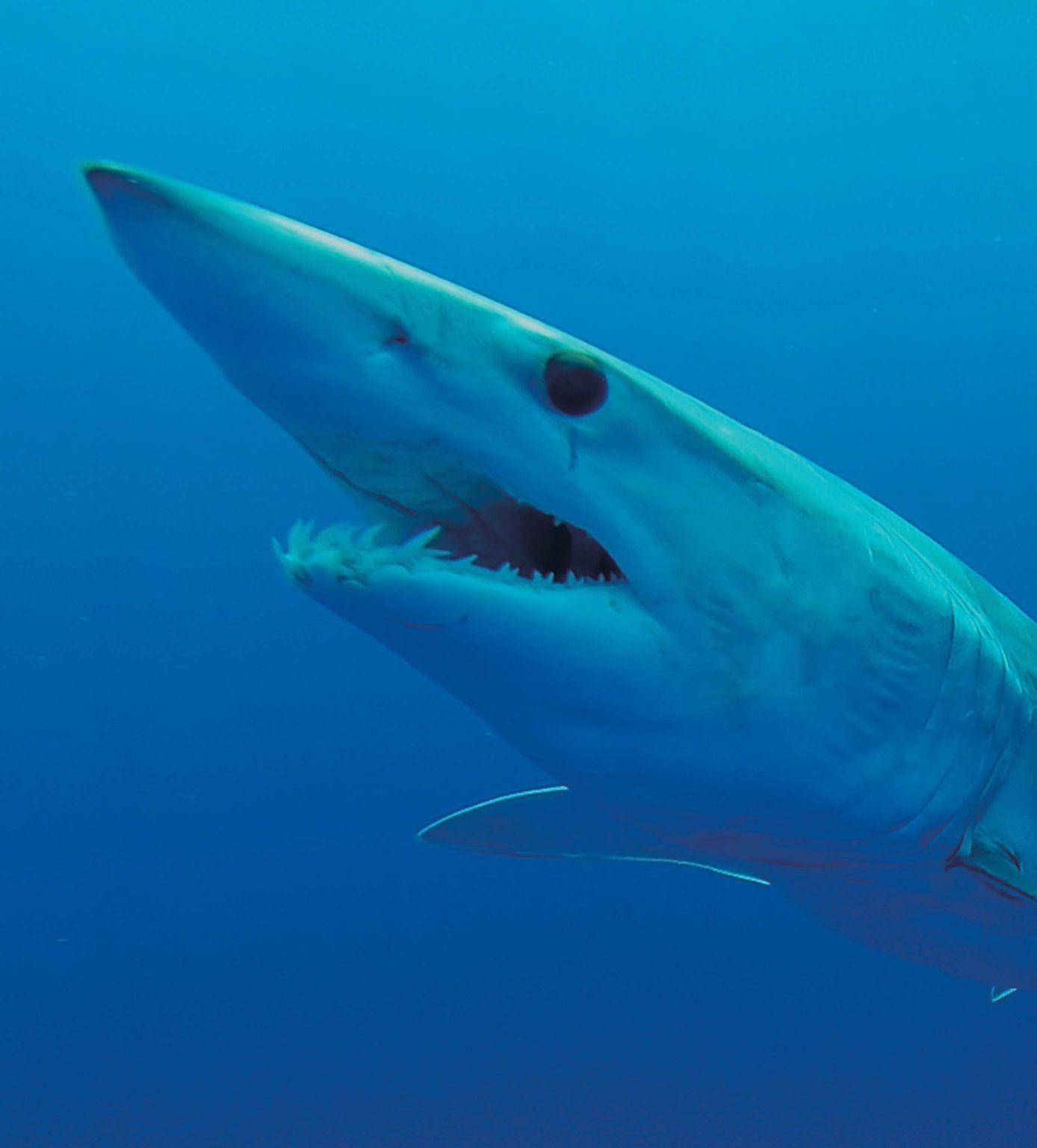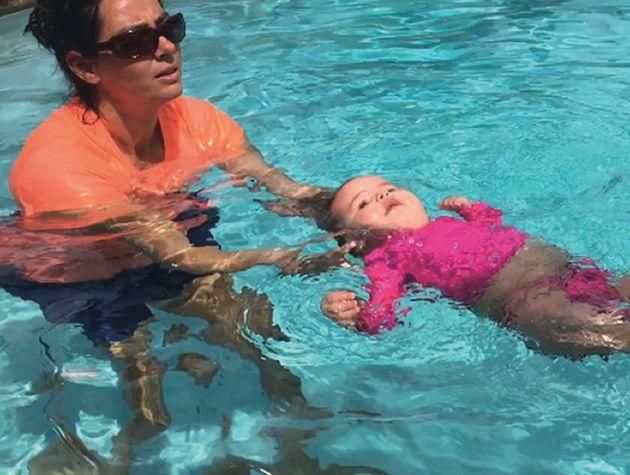
13 minute read
YOUR BRIGHT FUTURE
Your B righ t
F U T U R E
Advertisement


For students eyeing an ocean-themed career, the possibilities are endless and the preparation can start now.

BY MELISSA BRODEUR – PROGRAM MANAGER, NATIONAL OCEAN SCIENCES BOWL
Have you ever dreamed of diving deep beneath the ocean’s surface in a submersible to discover new species of marine life? Or would you like to study how to keep a critically endangered species of sea turtle from going extinct? Maybe create a new technology that easily removes plastic material from the oceans?
If you’re a water lover, you know that our regional coasts, Great Lakes, and open oceans have an enormous impact on our environment, health, safety, security and well-being. The ocean also stimulates our economy through tourism, recreation, trade and fishing; it drives weather patterns and climate, influencing extreme events; and it can provide clean, renewable energy.
Amazingly, much of the vast ocean is still undiscovered. We have more detailed maps of the moon, Mars, and Venus than we do of our own seafloor, and there’s a myriad of ocean-related problems that need solving. The bottom line is this: We need researchers and explorers to help us discover and learn more about our oceans. We also need communication and policy experts to help transfer knowledge and highlight the importance of ocean issues. In other words, we need a new generation of marine science experts.
Whether you’re reading this as a high school or college student, the parent of a budding scientist or even just looking for a career change, there is a world of opportunity in marine science and its many related fields.
By studying the ocean, you can do more than just find a job—you can help make a difference for our blue planet. Armed with a solid knowledge of ocean science, you will be well equipped to tackle important, timely topics such as changes in global climate and weather, ecosystem health, sustainability and resource conservation.
Ocean science is, by nature, multi-disciplinary. This means you can study the ocean whether you want to focus on physics, chemistry, biology, geology, technology or mathematics.
CHARTING A COURSE
For example, you can use math to look at the statistics of changing fish populations, or chemistry and biology to research how pollutants are impacting whales and sharks. And if you aren’t interested in being a scientist, there are plenty of applied and support-type jobs that utilize ocean science, like harbormasters, scuba tour guides, ship captains, science journalists, technicians aboard research vessels and environmental lawyers. The options are endless.
If you’re in—or entering—high school, the National Ocean Sciences Bowl® (NOSB®), a program of the Consortium for Ocean Leadership, has some ideas on how you can prepare for the next level of your education, especially if your ultimate goal is a career in the ocean sciences.
The NOSB’s mission is to enrich science education and learning through a nationwide competition that increases high school students’ knowledge of the oceans and Great Lakes and possible career paths while promoting ocean stewardship. Since ocean science is not a course generally offered at the high school level, the NOSB is one of the only ways many students can gain exposure to ocean science and related careers. Over the past 19 years, the NOSB has exposed 28,000 high school students nationwide to ocean science and related environmental science education and careers. Many students have gone on to meaningful careers. Examples include an expedition specialist for the National Oceanic and Atmospheric Administration (NOAA) Office of Ocean Exploration and Research at sea expeditions; an interpretive park ranger for the National Park Service; a science communication specialist for a West Coast university; and a congressional fellow for a science and technology fellowship program in Washington, D.C. There are so many opportunities to immerse yourself in ocean study, and increasingly more ways to secure a career related to the ocean. Here are a few tips on how you can get started on your ocean education and career paths right now:
Follow your interest! What is it about the ocean you love? Are you drawn to the creatures, big and small, that live in the marine environment? Or are you interested in fossils of organisms that no longer exist? Do you like spending time on boats or using the latest technology? Or are you intrigued by what life was like in maritime regions hundreds of years ago? Once you know what fascinates you most about the ocean, you can explore whether you want to be, for example, a marine biologist, paleoclimatologist, ocean engineer, maritime historian or archeologist. But remain flexible—your interests may change as you learn more about the ocean. Enthusiasm is vital! What drives you? The excitement of new discoveries? A desire to change your community or to solve complex problems? Communicating the beauty of the ocean through words or art? Knowing your strengths and what drives you can steer you toward choosing research, education, communication, conservation or policy—all of which are ways to shape future decisions, practices and public opinions that affect the ocean.
Do your homework! There are many universities that have marine science departments, schools or institutes with programs for undergraduate students. What education level (technical, undergraduate or graduate degree) and coursework (zoology, statistics, communications, policy or economics) are required for your ideal job? Research which universities and colleges offer the programs and courses needed for you to succeed (see some highlighted undergraduate programs on the next page). Often, you’ll need to take basic science, math and computer courses before specializing in ocean science. But note that not all ocean science careers require a Ph.D. Today’s ocean workforce specifically needs people who can operate and maintain specialized equipment. So consider asking if opportunities for scuba and boat handling certifications are available. Oh, and do your regular homework, too—doing well in school is important, no matter what you want to do in the future.
Ask questions! Talk to individuals working in the career you want, asking them how they got to where they are now. You’ll find there is no one correct path.
first steps
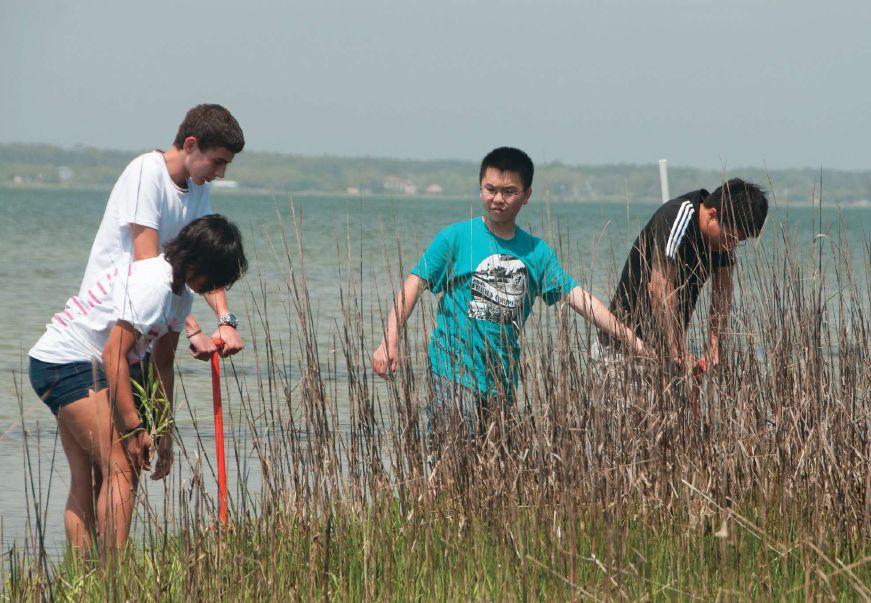
Left: Get out on the water and learn a new skill, such as kayaking, which allows you to explore estuarine habitats close-up. Above: Participate in local conservation projects, such as planting marsh grasses as part of a living shoreline restoration effort to protect land from erosion and provide habitat for other plants and animals.
Washington, DC San Diego, CA Seattle, WA Milwaukee, WI Houston, TX Boston, MA
Industry/Professional Services Colleges & Universities Federal Government
Bachelors Degree (1-4 years) Masters Degree (1-4 years)
Doctorate (1-4 years) $104,200 $98,790 $130,270 $106,120 $114,630 $76,080 $92,990 $117,220 $90,940



$75,870 $67,100 $95,120 $63,170 $100,470 $77,860 $92,090 $87,540 $86,270
$83,920 $73,360 $92,070 $65,230 $84,270 $83,750 $86,020 $72,370 $84,380
$84,600 $51,220 $70,260 $72,430 $76,150 $55,070 $66,390 $65,150 $74,400
$144,540 $57,020 $80,000 $55,890 $88,200 $57,870 $67,160 $86,530 $103,480
$102,040 $54,670 $115,450 $73,060 $89,960 $82,560 $86,110 $85,250 $84,440
$82,320 $64,990 $108,070 $70,080 $114,390 $68,310 $83,370 $74,620 $84,280
$79,530 $55,420 $75,760 $56,320 $69,430 $53,980 $71,160 $63,280 $68,850
$96,170 $77,590 $106,020 $100,280 $109,360 $75,560 $82,430 $104,730 $86,950
$45,374 $43,638 $56,492 $46,924 $48,028 $43,638 $45,374 $47,323 $51,844
$56,647 $45,171 $70,886 $45,171 $57,505 $45,171 $56,647 $50,514 $58,178
$63,465 $60,630 $110,000 $60,243 $88,229 $60,243 $62,267 $66,385 $61,721
What to expect as a salary, given geography (where you are working), sector (industry, government, non-profit, etc.), and level of experience and degree obtained. Examples are median data that serve as a starting point for salary expectations.
When you start asking others about their course of action, you’ll see that they probably didn’t follow a straight line but instead more of a meandering path, where each experience helped shape the following one. And, by asking questions and sharing your specific interests, you may just find a mentor who will help put you on the path toward achieving your goals. Many NOSB alums note that by speaking to professionals during their time competing at the NOSB regional competitions, they met future professors, advisors and employers! So don’t be afraid to speak up!
Take initiative! Search for new and exciting opportunities and experiences and commit to as many as possible. Consider summer classes with marine education programs, volunteer positions at local aquaria and museums, internships with corporations and nonprofits, summer field work or independent studies with university programs, and fellowships with state and federal governments. Each opportunity can provide you with the necessary skill sets— such as effective communication, independent research, public speaking or computer programming—for success in your education and future employment.
Don’t let geography stop you! Just because you may live in a landlocked state doesn’t mean you can’t study the ocean and one day work in an ocean-related field. The NOSB’s 2014 and 2015 National Championship team lives in Boise, Idaho. Prior to the students forming an NOSB team, they had never been exposed to oceanography. Through hard work and studying, they learned that Idaho, while hundreds of miles from the ocean, would be affected by ocean acidification. Fishing is popular in Idaho, and while the state may not feel the effects as soon as others, salmon fishing upstate will certainly be impacted by ocean acidification. If you don’t live in a coastal state, consider studying aquatic science. The Great Lakes, which contain 90 percent of the total freshwater in the U.S., support agriculture, fisheries, shipping, recreation and tourism, and industry. Therefore, we also need science experts who can focus on protecting freshwater resources, which face negative impacts due to increased human development, climate change, pollution and invasive species.
Join the NOSB! If you are in high school, consider participating in your local NOSB regional competition. You will meet ocean science professionals and other students with similar interests, all while learning about the ocean and gaining critical thinking, research, and leadership skills that will assist you in future academic and career aspirations.
For more ideas, as well as profiles on current ocean science professionals and employers in the ocean sciences, check out the NOSB’s career resource booklet for students, An Ocean of Possibilities! Careers Related to the Ocean and Aquatic Sciences, at www.NOSB.org. Other great resources include The Bridge (http://web. vims.edu/bridge/), and Sea Grant Guide to Ocean Opportunities (http://www. marinecareers.net) and www.womenoceanographers.org. As you can see, there are so many opportunities for education that with some self-directed research and enthusiasm for new experiences, you can chart your own course toward an ocean-related career!
Programs for High Schoolers
Mote Marine Laboratory & Aquarium — Mote is an
independent marine research institution that focuses on research and education. Their “Discovering the Florida Keys” and “Ecology of the Florida Keys” week-long programs offer high school students the opportunity to explore the marine life of the Florida Keys through boat and kayak excursions, snorkeling trips, tidepool explorations, and visits to the Dry Tortugas National Park or the Dolphin Research Center. Visit mote.org.
Sea Education Association (SEA) — Located at the Woods Hole
Oceanographic Institution, SEA Science on the Cape is a summer program that offers high school students the opportunity to study the marine environment from scientific, historical, literary, cultural and nautical perspectives. The program involves coursework, lectures, field trips, and laboratory activities that highlight teamwork and leadership, as well as evening activities and games to build community amongst the students staying in the cottages. Visit sea.edu.
NOAA Science Camp Junior Leadership Program
(JLP) — JLP is designed specifically for teens entering 9th–12th grades and aims to provide hands-on learning experiences in leadership, communication skills, team-building and scientific research. Participants work with NOAA scientists and professional science educators over the course of the two-week program. Junior leaders participate in a variety of activities that develop their skills as leaders, teachers, and ocean scientists, and that give them unique exposure to marine-related careers. Visit wsg.washington.edu/students-teachers/k-12-activities/ noaa-science-camp/jr-leaders/.
Shoals Marine Laboratory (SML) — Located on Appledore
Island off the coasts of New Hampshire and Maine, SML offers high school and undergraduate courses on a remote marine science field station each summer. The high school courses, which include intensive, all-day learning and extensive field work, include Marine Environmental Science and Introduction to the Biology of Sharks, Skates and Rays. The courses can help you earn your first college credits. Visit www.shoalsmarinelaboratory.org.
SCUBAnauts International™(SNI) — If you live in Florida, or plan to go to college there, and have an interest in scuba, check out SNI. SNI involves young men and women, ages 12–18, in the marine sciences through underwater marine research and conservation projects that build character, promote active citizenship and develop effective leadership skills. Their Combat Wounded Veterans Challenge provides participants a week-long expedition during coral transplants to interact with veterans recovering from war-related ailments. Visit www.scubanautsintl.org. Students help to transport a deceased dolphin to a lab when a necropsy (autopsy on an animal) will be performed.
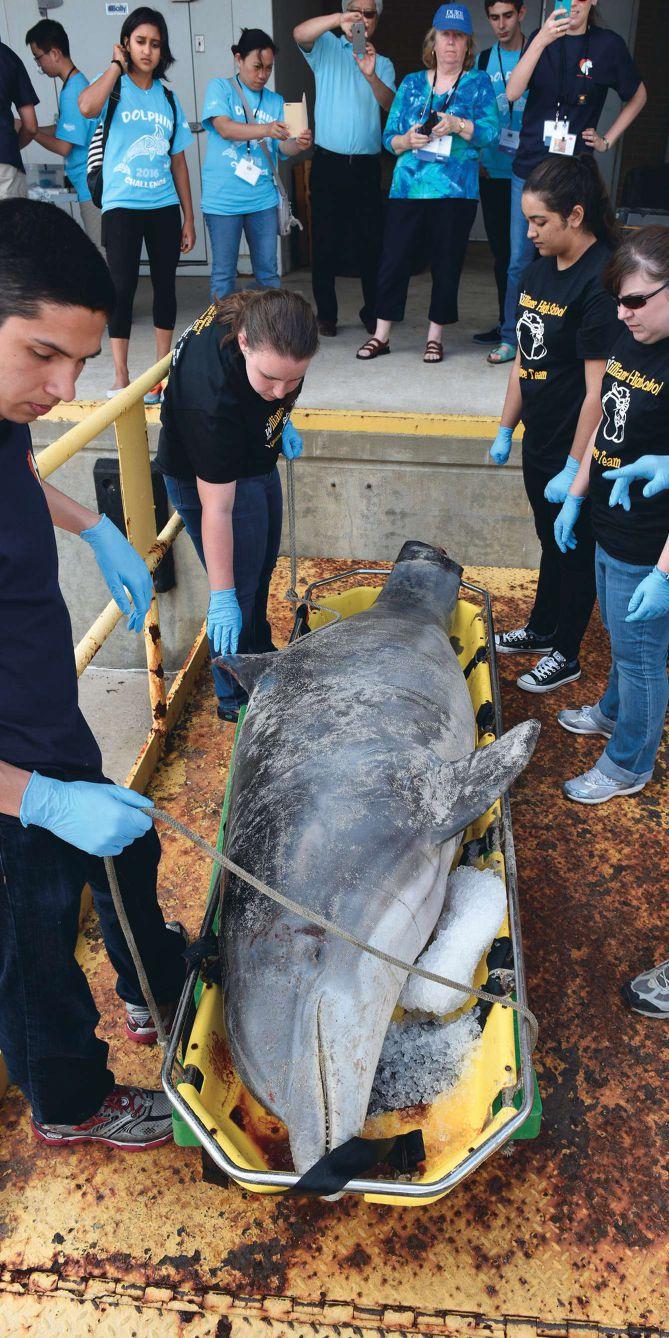
Marine studies are about field work as well as research inside the lab.
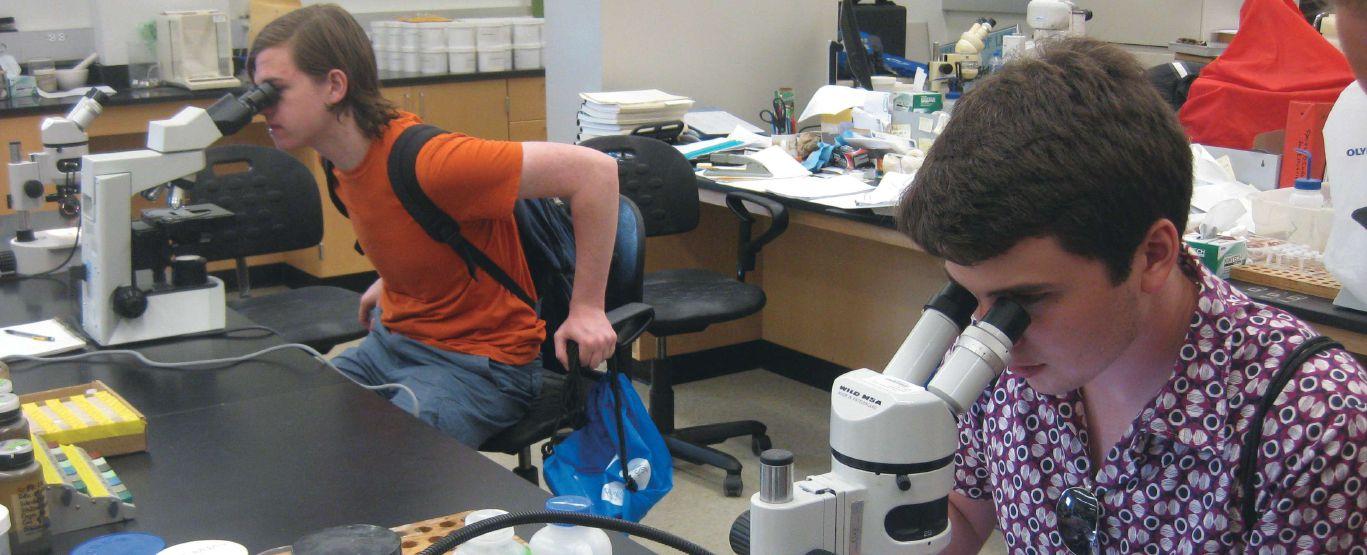
University Undergraduate Programs
Savannah State University (SSU) — SSU offers a B.S. and
M.S. in marine science, incorporating field, shipboard and laboratory experience; student-centered community outreach; and service learning. SSU takes advantage of their location on a salt marsh and offers direct ocean access and marine lab facilities that provide hands-on instruction. As the oldest public, historically black college and university in Georgia, and the oldest institution of higher learning in Savannah, SSU serves the educational needs of an increasingly diverse student population. Visit www.savannahstate.edu.
University of Wisconsin Milwaukee — The School of
Freshwater Sciences offers undergraduate students an Applied Urban Aquaculture Certificate, hands-on summer field courses and research opportunities with leading freshwater scientists. Students can interact with in-house partners, including U.S. Geological Survey, U.S. Environmental Protection Agency and U.S. Department of Agriculture. Program highlights include handling perch and Lake Neeskay. Visit www.uwm.edu.
University of Delaware (UD) — UD has very strong
undergraduate programs in marine biosciences, marine policy, and oceanography and physical ocean science and engineering as part of its School of Marine Science and Policy. A Marine Operations team supports sea-going research activities with the research vessel Hugh R. Sharp and a small boat fleet based at the harbor facility in Lewes. A summer internship program allows B.S. students to work on semi-independent projects of their design. Visit www.udel.edu.
University of California, Santa Cruz (UCSC) — One
of UCSC’s most popular undergraduate majors is marine biology, due to the large number of lab and field courses that provide students with opportunities to study and conduct directed or independent research in a diversity of marine ecosystems. UCSC is situated within five miles of Monterey Bay and is close to a number of nature reserves and state, federal, and private marine research institutions and resource management agencies. Visit www.ucsc.edu.
Texas A&M University at Galveston (TAMUG) — With
a distinct identity in marine themes, TAMUG is intimately connected to the land grant mission of Texas A&M University and, as such, its academic programs and research initiatives are linked to finding basic and applied solutions in maritime affairs, science and technology, and ocean studies. The Texas Maritime Academy offers a four-year education, with licensing option, to those interested in the Coast Guard, Navy or other military branch. Visit http://www.tamug.edu.
FLAGLER COLLEGE — The coastal environmental science major at Flagler takes advantage of the school’s location in St. Augustine, Florida, combining its coastal location with expert marine scientists who teach and mentor undergraduate students in a wide array of projects from sea turtles and dolphins to oyster reefs and fish communities. Students can participate in marine research as soon as they step foot on campus. Many have co-authored peerreviewed publications, presented their work at scientific conferences, completed international internships, and secured positions in graduate school and scientific consulting careers. Visit www.flagler.edu.
UNIVERSITY OF WEST FLORIDA — The University of West Florida is one of only a few institutions in the United States which offers a Bachelor of Science in Marine Biology. It combines core biology classes with electives that address both the theoretical and practical aspects of aquatic/marine biology. Graduates may pursue an advanced degree in a number of related fields, including marine biology, fisheries management, aquaculture, pollution biology and marine toxicology. Visit www.uwf.edu.
